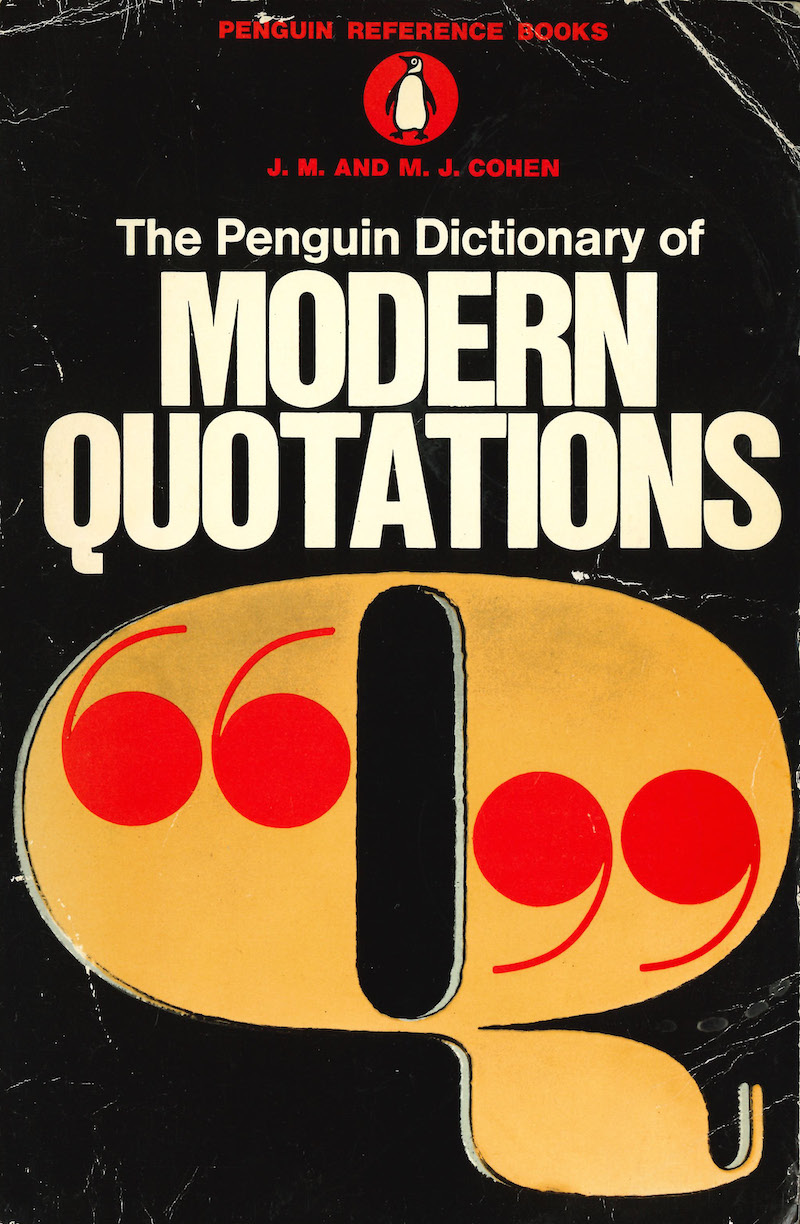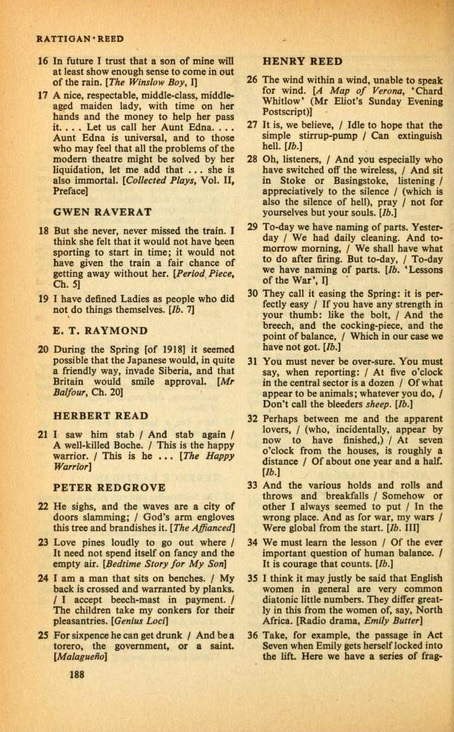One of my favorite pieces on Henry Reed is this 1971 retrospective from the Guardian, "The Reeve's Tale," by the music critic Christopher Ford. It was a promotional piece written for the publication of Reed's two collections of radio plays, The Streets of Pompeii and Other Plays for Radio, and Hilda Tablet and Others: Four Pieces for Radio (London: British Broadcasting Corporation). From this article we also get not one (Manchester edition), but two photographs of Reed, (London edition, shown here) taken by Peter Johns (previously).
In the article's closing paragraph, Reed says, "I saw the Penguin Dictionary of Modern Quotations in a shop. I remember thinking 'I've got 150 sleeping tablets at home, and if I'm not in that I'll take some of them with a large Pepsi-Cola'."
Ford reports that Reed's quotes take up "more than three columns, the entries mostly coming from the Tablet plays."
It's difficult to express what an achievement this amount of textblock is, appearing in this small Penguin paperback: Reed gets more than a page and a half of space devoted to his poems and plays. He actually appears on the same page with the poet and critic he is famously often confused with, Herbert Read. Read gets only one quote (and surprise! It's not "To a Conscript of 1940"):
Looking to Reed's peers, we find that even W.H. Auden receives only two columns; T.S. Eliot gets two and a half; Louis MacNeice gets one column: half a page. Stephen Spender, barely half a column. Stevie Smith gets five quotes. C. Day Lewis? Four. George Orwell gets three, three and a half columns? A little more. W. Somerset Maugham gets three columns. I mean, Evelyn Waugh rates three columns. This is what I'm saying.
I think the superabundance of Henry Reed in this curious volume is owed to two things: firstly, the entire Hilda Tablet sequence was replayed on the new BBC Radio 3 between December, 1968 and January 1970. ("Altogether, they totalled seven. The number is sometimes given as nine; but people exaggerate.") These repeats were in tribute to the incomparable radio actress Mary O'Farrell, who had died on February 10, 1968. Reed hosted (and Douglas Cleverdon produced) a program of recollections and recordings for O'Farrell in January, 1969. Dame Hilda died with O'Farrell, and a planned eighth installment for the radio was abandoned.
Secondly, this largess must be credited (or blamed) on the editors, J.M. Cohen and his son, M.J. Cohen. I suspect the elder Cohen knew Reed's work not just from the radio, but from earlier anthologies for Penguin: The Penguin Book of Comic and Curious Verse (1952), More Comic and Curious Verse (1956), and Yet More Comic and Curious Verse (1959).
I'll use the Cohens' book to expand my rather meager "Henry Reed quotes" page.










